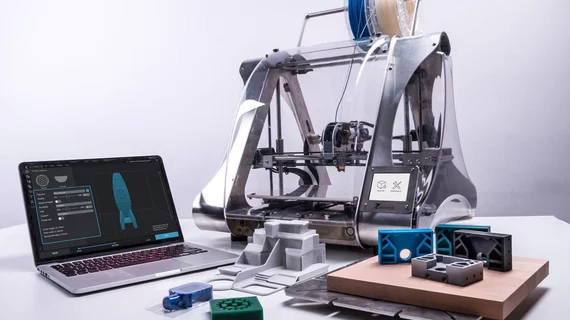Crowdsourcing, 3D printing rise to fill hospitals’ COVID-19 equipment gaps
The can-do spirit of techies is shining around the world in some modest but mighty efforts to pitch in against the global coronavirus pandemic.
Easily overlooked examples include a 14-employee startup in Italy 3D-printing valves to connect respirators to oxygen masks, a home-based business in Upstate New York printing protective face shields for health workers and far-flung hospital teams digitally sharing tips to build, fix or modify ventilators.
NBC News has compiled a rundown of some of the most impactful innovators.
“The gadget repair company iFixit is building a digital library of dozens of service manuals for ventilators and anesthesia machines that can be used as backup ventilators to ensure that the machines can be repaired as quickly as possible,” write reporters Olivia Solon and April Glaser.
Meanwhile the U.K.-based nonprofit Newspeak House has created the Coronavirus Tech Handbook, an online guide for responding to the pandemic.
“This is about how to use simple tech that people are familiar with in a sophisticated and nuanced way,” says Newspeak House founner Edward Saperia, who adds that the handbook is a Google Document and that collaborators are organizing via WhatsApp.
The reporters quote Kevin Cyr, a student at the Stanford University School of Medicine who researches 3D printing for medical devices. He points out that challenges remain in crowdsourced solutions to healthcare problems.
“The concerns are quality and the ability to manufacture at scale, with sterilization and the safeguards that are necessary for medical equipment,” Cyr says.
At the same time, he notes, the 14-employee company 3D-printing life-saving valves in Italy “is a good example of doctors identifying a concrete need that they can take to an innovator and could find a solution around.”
Read the whole thing:

